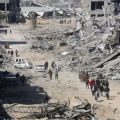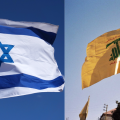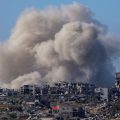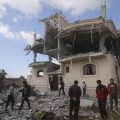Israel Braces for Possible Iranian Retaliation After Suspected Airstrike in Syria
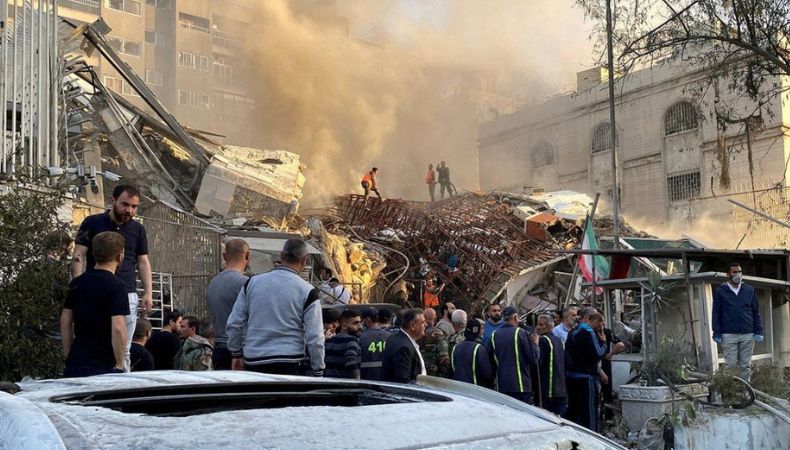
Israel is preparing for the possibility of an Iranian retaliation after a suspected Israeli airstrike on an Iranian diplomatic compound in Damascus, Syria. Prime Minister Benjamin Netanyahu warned that Israel will “harm whoever harms us or plans to harm us.” The Israeli military has suspended leave for all combat units, and the U.S. has reaffirmed its support for Israel. Iran has vowed to avenge the killing of its generals, but analysts believe Tehran may opt for a more measured response to avoid a wider conflict that could destabilize the country.
Heightened Tensions between Israel and Iran
The suspected Israeli airstrike on an Iranian diplomatic compound in Damascus has raised the specter of a broader conflict between Israel and Iran. Israel’s arch-enemy, Iran, has sworn revenge for the killing of two of its generals and five military advisers in the attack.
Netanyahu has made it clear that Israel will defend itself against any threats, saying, “Whoever harms us or plans to harm us, we will harm them.” The Israeli military has taken additional measures to prepare for a potential retaliation, including suspending leave for all combat units and mobilizing more troops for air defense.
The White House has spoken with Netanyahu and reaffirmed the United States’ strong support for Israel in the face of the Iranian threat. This comes as Israel continues to wage a war against the Palestinian Islamist group Hamas in Gaza and trade fire with Iran-backed Hezbollah in Lebanon.
Proxy Warfare and Cautious Approach
Iran has several options for retaliating against Israel, including unleashing its heavily armed proxies in Syria and Iraq or using Hezbollah to attack Israel directly. However, many diplomats and analysts believe Iran’s clerical elite is wary of an all-out war that could endanger its grip on power.
Instead, Iran may opt for a more measured response, relying on proxy strikes to carry out selective tactical attacks on its foes. This approach was evident in February, when Washington retaliated for the killing of three U.S. soldiers in Jordan with dozens of airstrikes on targets in Syria and Iraq linked to Iran’s Revolutionary Guards Corps and militias it supports.
U.S. officials have not yet detected any signs that Iran-backed groups are planning to target U.S. troops in the region following the suspected Israeli airstrike. However, there is growing concern that Iran will make good on its threats to retaliate, raising the risk of volatile, regional escalation.
Amos Yadlin, a former Israeli intelligence chief, suggested that Iran might choose Friday, the last day of the holy Muslim month of Ramadan and Iranian Quds (Jerusalem) Day, to respond to the Damascus strike, either directly or through a proxy. He urged Israelis to be “tuned for tomorrow” but advised them not to “panic” or “run to the shelters,” citing Israel’s aerial defense systems.
Keep Reading
Preventing Wider Conflict
Both Israel and Iran appear to be keen to avoid a full-scale war that could destabilize the region. Iranian leaders have publicly indicated that the country, which has deep-seated economic problems and recently faced popular unrest, does not want a big war that could further undermine its grip on power.
As tensions between Israel and Iran simmer, both sides are treading carefully to avoid a broader war that could destabilize the region.

